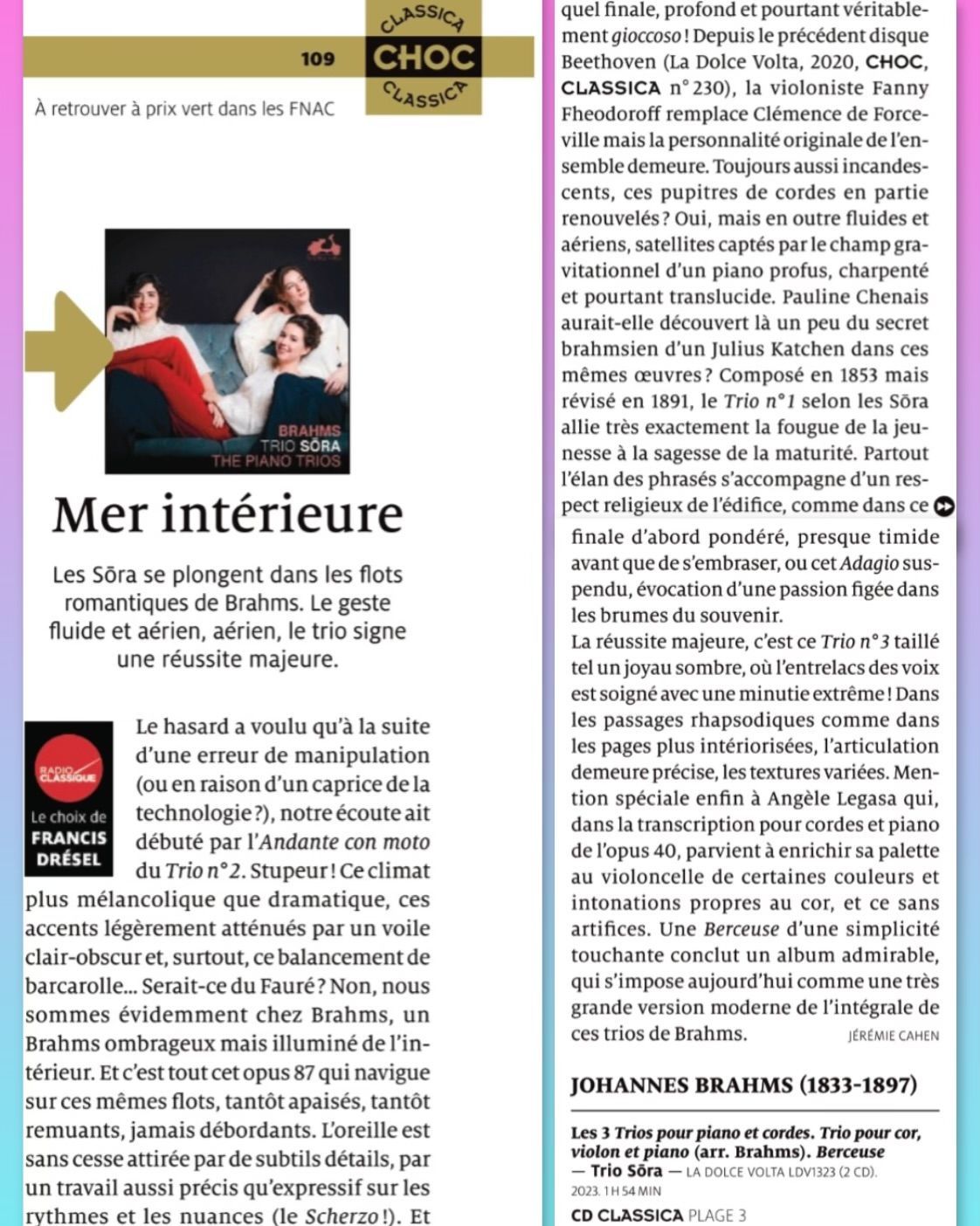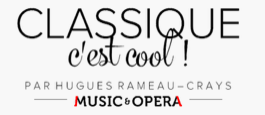"A strong first recording. Bravo ! " Qobuz
Charlotte Gardner • 10 novembre 2020
Comprised of pianist Pauline Chenais, violinist Clémence de Forceville and cellist Angèle Legasa, Trio Sōra may well be a new name to many Qobuz listeners, when this is a debut album. That said, the name is likely to ring bells for anyone who keeps an eye on Europe's various young artist programmes and festival academies, because this young French ensemble's notable achievements of recent years include the Special Prize of the Verbier Festival Academy in 2018, and in 2020 a Borletti-Buitoni Trust Fellowship.
Spread across three opus numbers, Beethoven's piano trios begin with the three-strong Op. 1 set, published in 1795 when he was in his mid-twenties, and stylistically still firmly rooted in the Viennese Classicism of Haydn. However Romanticism is thoroughly in the picture by the time he returned to the genre in 1808, shortly after completing the “Pastoral” Symphony No. 6, penning the Op. 70 pair with its famous “Ghost” Trio No. 1. Finally there's the grand Op. 97 “Archduke” Trio of 1811 - technically another middle period work, but one which with the almost symphonic scope of its four movements and complex emotional world feels feels well ahead of its time.
What Trio Sōra bring to the set is immensely enjoyable. In performance practice terms, these are broadly “modern” readings, employing unobtrusive vibrato, and even subtle portamento at the most Romantic and impassioned end of the set. Beethoven's stormy switchings on the flip of a coin between dynamic extremes are realised with both clarity and charm: pianissimos are true whispers, and while sforzandos and
fortissimos come with punch, it's never at the expense of beauty of tone; with the Opus 1 set in particular, Viennese elegance reigns supreme. As a result, the impression across the set is overwhelmingly of lightness of touch, sprightly and precise articulation. Yet don't interpret that description as “one flavour”, because these readings are anything but; not least because these three musicians are not shy about making this music their own. Take the “Archduke” Scherzo, where playful metrical tugs and pushes, and the odd slight second-beat emphasis, sometimes create an almost off-kilter effect, which then serves as a brilliant foil to other sections of rhythmically steady, joyous swing. Also mention-worthy is the poetry and technical aplomb
with which Pauline Chenais rises to the demanding piano role, her tone beguilingly soft-focus and pearly
one moment, and brightly crisp
the next.
A strong first recording. Bravo!
© Charlotte Gardner/Qobuz
À Toulon, un festival pour (re)décou vrir les compositrices d’hier et d’aujourd’hui













